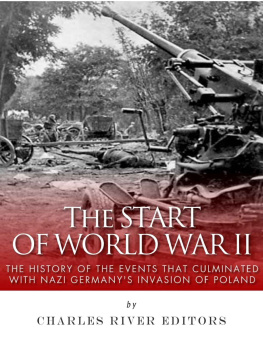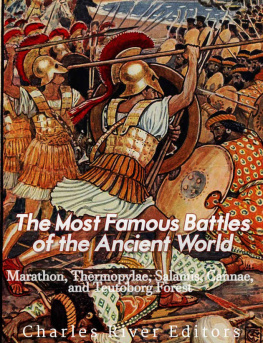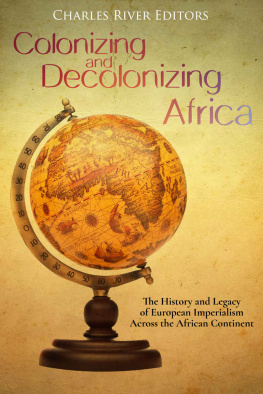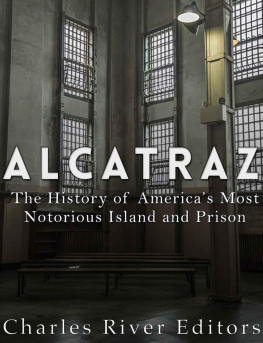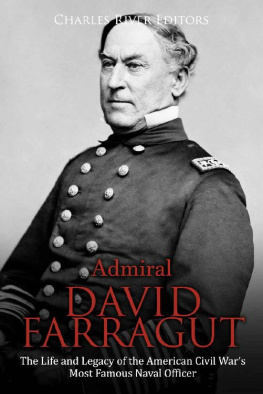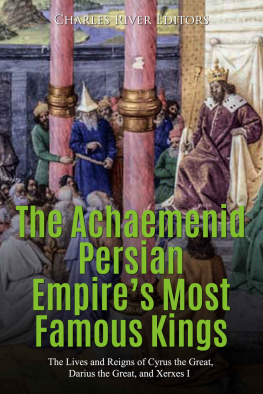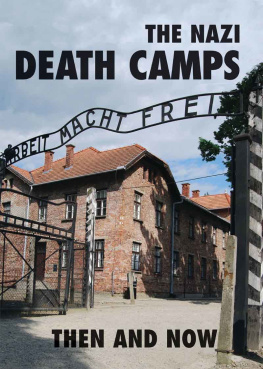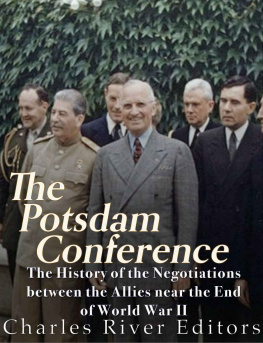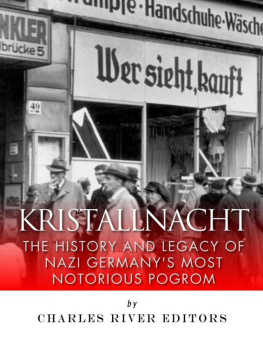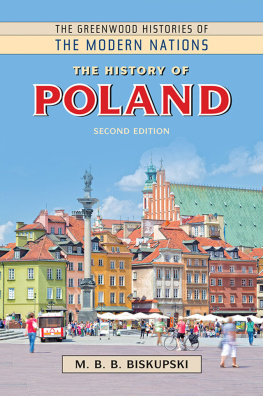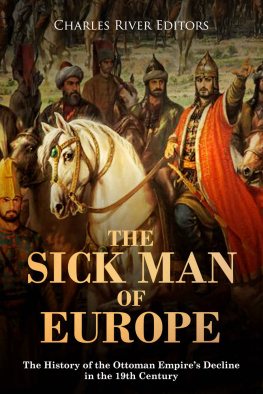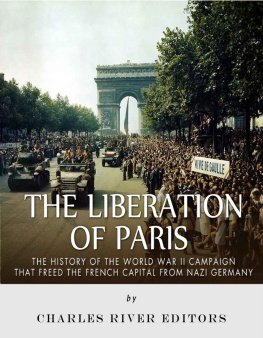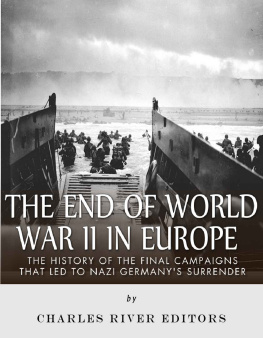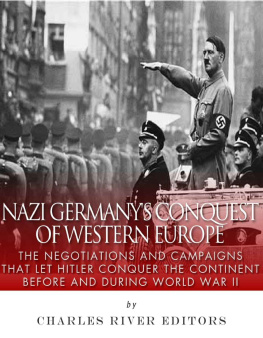Charles River Editors - The Start of World War II: The History of the Events that Culminated with Nazi Germany’s Invasion of Poland
Here you can read online Charles River Editors - The Start of World War II: The History of the Events that Culminated with Nazi Germany’s Invasion of Poland full text of the book (entire story) in english for free. Download pdf and epub, get meaning, cover and reviews about this ebook. year: 2015, publisher: Charles River Editors, genre: Science. Description of the work, (preface) as well as reviews are available. Best literature library LitArk.com created for fans of good reading and offers a wide selection of genres:
Romance novel
Science fiction
Adventure
Detective
Science
History
Home and family
Prose
Art
Politics
Computer
Non-fiction
Religion
Business
Children
Humor
Choose a favorite category and find really read worthwhile books. Enjoy immersion in the world of imagination, feel the emotions of the characters or learn something new for yourself, make an fascinating discovery.
- Book:The Start of World War II: The History of the Events that Culminated with Nazi Germany’s Invasion of Poland
- Author:
- Publisher:Charles River Editors
- Genre:
- Year:2015
- Rating:3 / 5
- Favourites:Add to favourites
- Your mark:
The Start of World War II: The History of the Events that Culminated with Nazi Germany’s Invasion of Poland: summary, description and annotation
We offer to read an annotation, description, summary or preface (depends on what the author of the book "The Start of World War II: The History of the Events that Culminated with Nazi Germany’s Invasion of Poland" wrote himself). If you haven't found the necessary information about the book — write in the comments, we will try to find it.
*Explains the appeasement of the Nazis in Czechoslovakia and Austria, and reactions to it
*Includes accounts of the fighting in Poland
*Includes online resources and a bibliography for further reading
*Includes a table of contents
We have suffered a total and unmitigated defeat ... you will find that in a period of time which may be measured by years, but may be measured by months, Czechoslovakia will be engulfed in the Nazi rgime. We are in the presence of a disaster of the first magnitude ... we have sustained a defeat without a war, the consequences of which will travel far with us along our road ... we have passed an awful milestone in our history, when the whole equilibrium of Europe has been deranged. Winston Churchill
My good friends, the mustached, bony man with thick eyebrows and large, strong teeth somewhat reminiscent of those of a horse, shouted to the crowds from the second-floor window of his house at 10 Downing Street, this is the second time in our history, that there has come back to Downing Street from Germany peace with honor. I believe it is peace for our time. (McDonough, 1998, 70).
The man addressing the crowd, British Prime Minister Neville Chamberlain, had just returned from the heart of Nazi Germany following negotiations with Adolf Hitler, and the crowd gathered outside the English leaders house on September 30, 1938 greeted these ringing words with grateful cheers. The piece of paper Chamberlain flourished exultantly seemed to offer permanent amity and goodwill between democratic Britain and totalitarian Germany. In it, Britain agreed to allow Hitlers Third Reich to absorb the Sudeten regions of Czechoslovakia without interference from either England or France, and since high percentages of ethnic Germans often more than 50% locally inhabited these regions, Hitlers demand for this territory seemed somewhat reasonable to Chamberlain and his supporters. With Germany resurgent and rearmed after the disasters inflicted on it by the Treaty of Versailles following World War I, the pact known as the Munich Agreement held out hope of a quick end to German ambitions and the return of stable, normal international relations across Europe.
Of course, the Munich agreement is now notorious because its promise proved barren within a very short period of time. Chamberlains actions either failed to avert or actually hastened the very cataclysm he wished to avoid at all costs. The Munich Agreement of 1938 effectively signed away Czechoslovakias independence to Hitlers hungry new Third Reich, and within two years, most of the world found itself plunged into a conflict which made a charnelhouse of Europe and left somewhere between 60-80 million people dead globally.
Of course, as most people now know, the invasion of Poland was merely the preface to the Nazi blitzkrieg of most of Western Europe, which would include Denmark, Belgium, and France by the summer of 1940. The resistance put up by these countries is often portrayed as weak, and the narrative is that the British stood alone in 1940 against the Nazi onslaught, defending the British Isles during the Battle of Britain and preventing a potential German invasion.
In particular, the campaign in Poland is remembered as one in which an antiquated Polish army was quickly pummeled by the worlds most modern army. Polish lancers charging in a valiant yet idiotic attack against German tanks is the only image from the 1939 Nazi-Soviet invasion of Poland remaining in the popular imagination today. Originating as a piece of Nazi propaganda, paradoxically adopted by the Poles as a patriotic myth, the fictional charge obscures the actual events of September 1939. Outnumbered, outgunned, and under-equipped, the Polish army nevertheless inflicted heavy losses on the invading Wehrmacht. In fact, only the unexpected advance of Soviet forces from the east put a quick end to the struggle.
Charles River Editors: author's other books
Who wrote The Start of World War II: The History of the Events that Culminated with Nazi Germany’s Invasion of Poland? Find out the surname, the name of the author of the book and a list of all author's works by series.

